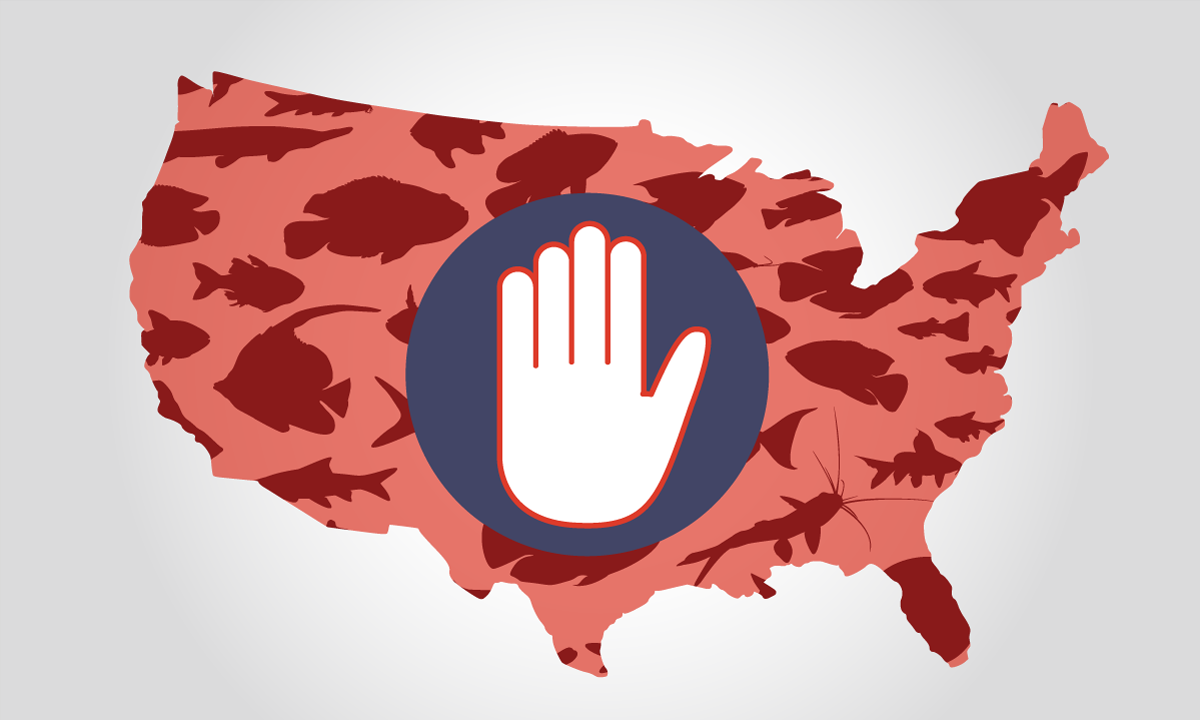Oblio
Fish Herder
Also, did it pass the full House, or just the committee?
All I want to say to PETA is...PETA hates the fish hobby period. They've released studies that have said that fish become neurotic from the noise of pumps. They also complained that so many aquariums are just too small for the fish in them- and then crowded by keepers to add to the misery. One study about plant aquariums that use Co2 say that the high level of that gas cause damage to the fish brains. Thats real physical damage. Global warming gas.
Basically to PETA almost nothing other than a Dog should be kept as a pet. Cats? They kill wildlife and unlike dogs their feces have parasites that get into local waters eventually. So PETA would say- keep small dogs if you have an apartment.
At least we could do better. I see lots of room for improvement. The big pet chains could do more to improve the lives of fish. If anybody could setup and afford a planted natural tank display its Petco and Petsmart and neither has anything like that.
Even if they make it illegal to have fish, they are gonna have to come and get em from me. It's just like if they make guns illegal to own in the USA - they can have them, when they pry em outta my cold dead hands.It passed the house. The senate is the last hope. Here is the information the National Aquaculture Association is putting out.
Read the relevant amendment text by clicking here.
What To Do
Through Feb. 2, contact the House Rules Committee and your federal Representative. Remember to be civil and professional at all times. Please personalize/edit your letters, if possible.
- Call your Representatives’ offices (link below) and the Rules Committee at (202)-225-9091;
- Email Representatives (link below);
- Fax letters to (202)-226-9191 and your Representatives;
- SHARE this and encourage others to complete the Alert!!!
Find your U.S. Representative:https://www.house.gov/representatives/find-your-representative
- Simply go to the link above and enter your zip code. Your Representative will appear. Just click on his/her name to send them emails through their websites. You will simply complete the contact form and copy your version of the sample letter below.
- The America COMPETES Act was referred to the House Rules Committee on Ways and Means. You can find those members at https://rules.house.gov/about/rules-committee-members. If your Representative is on this Committee, be sure to contact her or him and tell them you are a negatively affected constituent.
Subject line:
NO to Lacey Act Amendments in America COMPETES Act
Sample letter
I oppose provision the America COMPETES Act establishing authority for the US Fish and Wildlife Service (FWS) to regulate the movement of Injurious Wildlife within interstate trade of the continental United States. This provision does not provide any flexibility to the FWS to allow trade of species in portions of the country where they pose little to no risk (e.g., a tropical species in Alaska does not pose a similar risk as a tropical species in Florida) or for farms to ship fertile eggs, fry or fingerlings to states that allow culture.
Very few nonnative species pose continent wide risk. States have, and are, better positioned to regulate those species that pose a risk within their borders to locales that may be conducive for species colonization and potential damage. The Lacey Act supports federal, state and tribal wildlife management laws and will continue to provide this invaluable enforcement tool. Each state fish and wildlife agency and department of agriculture has the authority to prohibit or restrict native or nonnative species. Because of state prohibitions and restrictions, the Lacey Act already achieves the goal of regulating interstate trade while also supporting the flexibility by the states or tribes to discern where nonnative species pose ecological or economic risks.
I oppose provisions in the America COMPETES Act creating the authority for the Secretary of Interior to create an approved list of species for importation and interstate movement. Commonly termed “white lists,” the implementation of white lists is unusual amongst nations with Australia being an exception. White lists are also unusual for the federal government as a regulatory body and signatory or participant to international agreements and organizations predicated on prohibiting or restricting species trade for at-risk animals (i.e., Convention on International Trade in Endangered Species of Wild Fauna and Flora), noxious plants (i.e., International Plant Protection Convention), pathogens that may infect US agricultural animals (World Organization for Animal Health) and imported animals and animal products capable of causing human disease (Center for Disease Control and Prevention).
A white list is simply not feasible, given the millions of live organisms representing ~13,000 species imported to the United States annually and the potential for ~2,500 native US aquatic fish species to move in-and-out of the country or across state borders. The National Aquaculture Association estimates that there are 1,000 to 1,100 aquatic animal species farmed in the United States. The United Nations-Food and Agriculture Organization estimated 466 individual aquatic species, 7 interspecific hybrids of finfish, 92 species groups at genus level, 32 species groups at family level, and 25 species groups (fish, shellfish, reptiles, and crustaceans) that were farmed globally for food, stocking to enhance at-risk fisheries, and commercial and recreational fishing.
A white list would forestall the opportunity for: 1) US farms to produce these species for food or ornamental uses or to produce eggs, fry, fingerlings or seed to stock domestic or foreign farms and 2) US farmers to innovate. A national white list approach for the United States is not feasible for these reasons:
- Does not allow species possession in parts of the country where they would not pose a risk to the natural or human environments.
- May be opposed as a non-trade barrier by other countries.
- Animal identification challenges posed by species taxonomy which is always changing and common names are problematical for the many names that may be applied to any one species.
- Animal identification challenges posed by species morphology (color, shape, or size) can be influenced by the farm environment during grow-out or through animal breeding and selection to attract buyer interest.
- Processing incoming shipments and providing the animal care required during the species identification process may not be physically possible at the FWS designated ports of entry (Anchorage, Atlanta, Baltimore, Boston, Chicago, Dallas/Ft. Worth, Honolulu, Houston, Los Angeles, Louisville, Memphis, Miami, New Orleans, New York, Newark, Portland, San Francisco and Seattle) or special ports (Agana, Fairbanks, Juneau, and San Juan).
- The responsibility placed upon FWS Law Enforcement to rapidly distinguish, for animal health and welfare reasons, the >1,000 farmed aquatic animals in the United States, >2,500 native freshwater and marine fish species, ~13,000 white list species, 466+ globally farmed species and the current 785 Injurious Wildlife Species is well beyond the ability of experienced taxonomists. Notably, the number of fish species in the world are estimated to be ~34,000 and grows at approximately 250 new species each year.
- May direct agency resources away from interdicting illegal trade to focus on adequately monitoring legal trade in white listed species at designated and special ports of entry.
For these reasons, I believe the provisions creates punitive, unjustified prohibitions and criminal risk that may be opposed by the public for the lack of basis in science and risk which may erode a bedrock concept to US regulation: Consent of the governed.
Sincerely,
[your name]
The entire America COMPETES Act can be read at https://rules.house.gov/sites/democrats.rules.house.gov/files/BILLS-117HR4521RH-RCP117-31.pdf.
If it becomes law, and the law is not later struck down as unconstitutional or by legislation, I foresee a black market forming.I still need my lamb chop rasboras! Will this bill actually wipe out the whole aquatic industry? Will they take our aquariums? What about my aquarium I just spent MONTHS setting up! Will I still be able to add more fish? I'm soooo worried now
Also, did it pass the full House, or just the committee?

this broke it down pretty wellI still need my lamb chop rasboras! Will this bill actually wipe out the whole aquatic industry? Will they take our aquariums? What about my aquarium I just spent MONTHS setting up! Will I still be able to add more fish? I'm soooo worried now

Thanks, I suspected this was a partisan vote, so no Primary issue.
Roll Call 31 Roll Call 31, Bill Number: H. R. 4521, 117th Congress, 2nd Session
VOTE QUESTION: On Passage, DESCRIPTION: Bioeconomy Research and Development Act, VOTE TYPE: Yea-And-Nay, STATUS: Passedclerk.house.gov
So were all dead... Greatthis broke it down pretty well

Federal Legislation Threatens Pets, Zoos, Aquariums, and Biomedical Research - CORAL Magazine
Proposed revisions to the Lacey Act have passed in the House, are headed to the Senate, and could bring the entire pet trade and hobby to a grinding halt.www.reef2rainforest.com
This bill passes on Nov. 22?Thanks, I suspected this was a partisan vote, so no Primary issue.
Nov '22 can't come soon enough for the U.S.
No, mid-terms (November 2022), all the Reps are up for re-election, along with 1/3 of the SenateThis bill passes on Nov. 22?
Crud... I was hoping I had until then to get my fish...No, mid-terms (November 2022), all the Reps are up for re-election, along with 1/3 of the Senate
